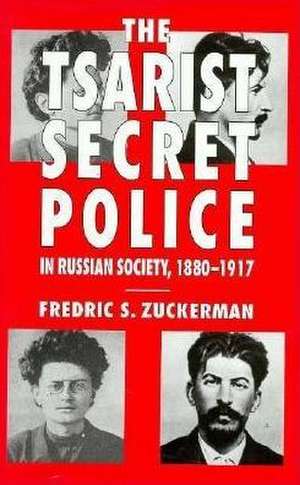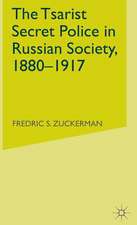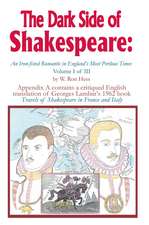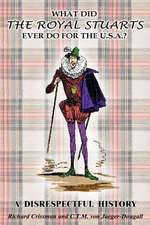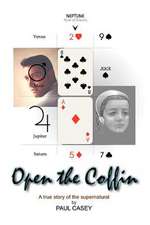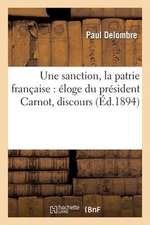The Tsarist Secret Police and Russian Society, 1880-1917
Autor Fredric S. Zuckerman, Frederic S. Zuckerman, Richard C. Lewontinen Limba Engleză Hardback – 30 apr 1996
Alexander II's Great Reforms of the early 1860s unleashed hopes among Russians for a true civil society resulting in increased political freedom. An attempt on the Tsar's life in 1866 put an abrupt end to these hopes, trapping Russian political life within a vicious circle of political reaction, growing disillusionment with government, and intensifying political dissent which increasingly manifested itself in acts of terrorism against Tsarist officials.
Fredric S. Zuckerman traces this political upheaval to the creation of the Department of State Police in 1880. This organization, created to combat all forms of political subversion, served as a declaration of war by Tsardom not only against Russia's terrorists, but against enlightened society as a whole. The secret police served as the vanguard of order and state force in this internal war, its tentacles penetrating every corner of Russian life.
The first book to place the entire history of the so-called Okhrana within the context of Late Imperial Russia, The Tsarist Secret Police and Russian Society brings the organization to life, revealing the activities of its detectives, secret agents, and police chiefs, as well as its relations with the Russian people. The secret police, as Zuckerman makes clear, were themselves ultimately victims of the political culture they strove to preserve.
Preț: 529.27 lei
Preț vechi: 687.37 lei
-23% Nou
101.27€ • 106.02$ • 83.80£
Carte tipărită la comandă
Livrare economică 05-19 aprilie
Specificații
ISBN-10: 0814796737
Pagini: 400
Dimensiuni: 145 x 223 x 35 mm
Greutate: 0.6 kg
Ediția:New.
Editura: NEW YORK UNIVERSITY PRESS
